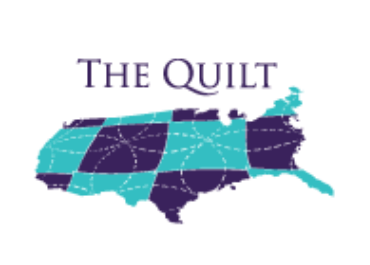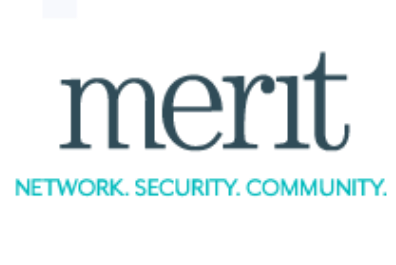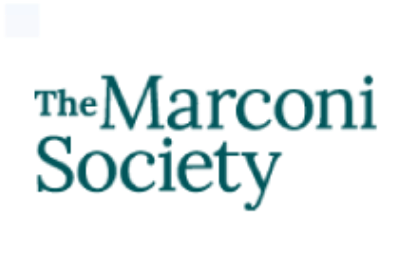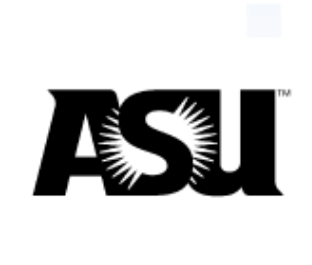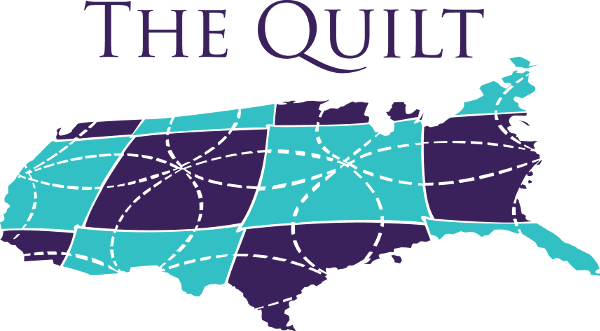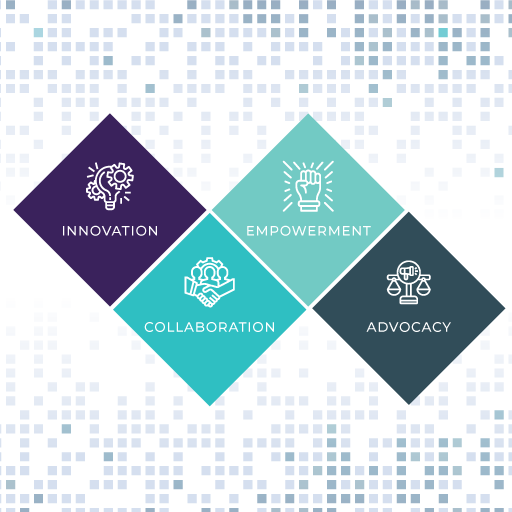Digital Opportunities Program
Transform Your Digital Skills
In collaboration with Arizona State University, The Marconi Society and Merit Network, The Quilt is pleased to offer our new Digital Opportunities Program to help build expertise in this profession in order to bring the power and benefits of the internet to all.
Digital Opportunities Program Certificate
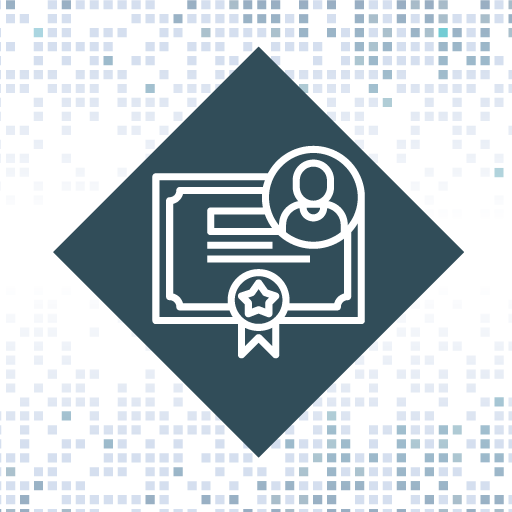
Course Overview
To address the urgent demand for expertise in closing the digital divide, the Digital Opportunities Program aims to help equip individuals with the necessary skills in technology and policy in order to meet the demands of this growing field. The course has five modules and serves as an important introduction to digital inclusion basics.
$1,500.00
Course Educator: Karen Mossberger, Ph.D., Professor Emerita, School of Public Affairs | karen.mossberger@asu.edu
Learning Outcomes
There are specific learning outcomes for each module. Taken as a whole, the certificate seeks to prepare participants to:
- Identify goals for digital opportunities in their states or communities
- Compare trade-offs and appropriate uses for different technologies, depending upon the community context
- Create high-quality plans for digital inclusion
- Engage stakeholders in planning and implementation
- Understand sources of data for planning and evaluation
- Evaluate how federal policy on broadband and digital inclusion affects programs for their communities
- Plan for sustainability
- Encourage innovative uses and measure impacts
Delivery and Pace
This is an asynchronous, online course. There are no face-to-face meetings or set times for online class meetings. Most modules are two weeks (Module 3 is 4 weeks) and you can view the videos and complete the assignments at your own pace within the time frames and due dates published below.
- You are encouraged to participate in the online discussion on the Yellowdig forum early in the 2nd week (or 2nd half) of the module, so that there is a chance to interact with other participants, commenting on their posts. Initial posts are due on the last Friday of each module, but conversations can continue over the final weekend.
- Once participants have received a passing grade on the discussion and on the assignment(s) for that module, a digital badge will be awarded for the module, and they will be able to proceed to the next module when it opens.
- Modules are scheduled to open on specific dates to encourage discussion as a cohort (see schedule below for dates).
Program Goals
Specific goals of this program are to bolster individuals with leadership skills and training to achieve a professional certification and the opportunity to participate in an R&E digital inclusion community of practice.
Our desired outcomes of the program are:
- To support member organization staff who are actively working in their local and state communities on digital inclusion efforts that impact access, affordability, and ability.
- To build the capacity of our national R&E networking community for local and state digital inclusion efforts.
- To create a cohort of R&E network digital inclusion leadership participants where together we will explore: Partnerships; Community engagement models; Digital navigator resources and programs for state-based efforts supporting NTIA Digital Equity Act capacity and competitive grant programs; Local planning and digital equity practitioner work, and R&E network professional service offerings to support local and state DEA plans.
Course Modules
Each module is focused on a series of videos recorded by prominent experts in policy making, digital inclusion programs, and academia. Be sure to read the biographies included with the videos, as they demonstrate the unique perspectives and substantial experience presenters bring to their subjects, from their past or current leadership in federal agencies, nonprofits, technology companies and local governments, or from cutting-edge research in fields such as computer science, public policy, sociology, economics, public health, engineering, and sustainability, among others. Case studies are also included in most modules to illustrate the application of concepts contained in the videos..
MODULE I - INTRODUCTION TO DIGITAL INCLUSION (Feb. 3-Feb. 28, 2025)
Defining Issues
- The Landscape, Angela Siefer, National Digital Inclusion Alliance
- Digital Redlining, Bill Callahan, Connect Your Community
Why Digital Inclusion Matters
- Economic Development, Karen Mossberger, Arizona State University
- Education, Keith Hampton, Michigan State University
- Health, Amy Sheon, Public Health Innovators
- Civic Engagement, Karen Mossberger, Arizona State University
Case Studies
- National Models, Corian Zacher, Next Century Cities
- Detroit, MI, Joshua Edmonds, Digital C (Formerly City of Detroit)
- Fort Collins, CO, Darin Atteberry, Elevation Credit Union (Formerly City of Fort Collins)
Module I Virtual Discussion Session: Wednesday, Feb. 26 (3 to 4 p.m. EDT)
Module I Assignment (due Friday, Feb. 28, 2025 – 11:59 p.m. PDT)
Consult the tables from the American Community Survey for your community or state, according to the instructions provided and write a 700- to 1,050-word (2-3 page) reflection about: What goals for digital inclusion should be addressed in a digital inclusion plan for your state, community or organization, given the data and what you know from your experience?
MODULE II – NETWORK TECHNOLOGY BASICS (March 3-21, 2025)
Network Technologies, Part I
- Definitions, Vint Cerf, Google and Marconi Society
- Broadband, Vint Cerf, Google and Marconi Society
- Wireline Technologies, John Cioffi, ASSIA
- Optical Fiber, Sir David Payne, University of Southampton
- Satellite Technology, Milo Medin, Schmidt Futures
- Wireless Applications, Siavash Alamouti, Mimik Technology, Inc.
- Wireless Technologies, Arogyaswami Paulraj, Stanford Univer
Network Technologies, Part II, Last-Mile Applications
- Community Wireless, Lev Gonick, Arizona State University
- Mesh Networks (Millimeter Wave), Rolando Alvarez, Digital C
- Setting Up Millimeter Wave Technology, Rolando Alvarez, Digital C
- Community Wi-Fi, Kevin Kelley (formerly Cleveland City Council)
Module II Assignment (due Friday, March 21, 2025 – 11:59 p.m. PDT)
Based on the videos for Module II, write a 700- to 1,050-word (2-3 page) reflection addressing: What infrastructure is needed in your community – in the immediate term (in the next 3 years) and in the longer term?
MODULE III - EVALUATING DIGITAL INCLUSION RESOURCES (March 24-May 16, 2025)
Getting Started: Planning and Coalition Building
- Broadband and Digital Inclusion Planning for Cities and Counties, Christopher Ali, Pennsylvania State University
- Role of State Funders in Digital Inclusion Work, Kathryn de Wit, Pew Charitable Trusts
- Identifying Community Resources and Asset Mapping, Paolo Balboa, National Digital Inclusion Alliance
- Finding Shared Goals and Aligning Interests, Bill Callahan, Connect Your Community
- How Local Foundations Can Support Partnerships and Coalition-Building, Leon Wilson, Cleveland Foundation
Digital Inclusion Ecosystems
- Digital Inclusion Ecosystems: Community Anchor Institutions, Lev Gonick, Arizona State University
- Role of Colleges and Anchor Institutions in Minority Communities, Scott Woods, Formerly of the National Telecommunications and Information Administration
- Role of Libraries, Rebecca Ranallo, Cuyahoga County Public Library
- Role of Housing Authorities, Jeffrey K. Patterson, Cuyahoga Metropolitan Housing Authority
- Community Networks: Importance of Communities Crafting Their Own Strategies, Christopher Mitchell, Institute for Local Self-Reliance
- Alternative Funding Streams, Jordana Barton-Garcia, Connect Humanity
Resources for Planning and Evaluation
- Intro to Broadband Mapping, Christopher Mitchell, Institute for Local Self-Reliance
- Poles, Attachments and Other Infrastructure Legal Issues, Nancy Werner, National Association of Telecommunications Officers and Advisors
- FCC Form 477 Data and the American Community Survey, Laura Breeden, National Digital Inclusion Alliance
- Utilizing Available Data to Inform A Broadband Plan, John B. Horrigan, Benton Institute on Broadband and Society
- The Importance and Role of Data, Samantha Schartman, Connect Humanity
- Program Evaluation, Part I: Planning from the Start, Eric W. Welch, Arizona State University, Center on Science, Technology and Environmental Policy Studies (CSTEPS)
- Case Study: Tech Goes Home, Massachusetts, Dan Noyes, Tech Goes Home
Module III, Assignment 3a (due Friday, April 18, 2024 – 11:59 p.m. PDT)
Find one state or local broadband or digital inclusion plan. If you have examples of your own, you may use them. Or you may use the links to past plans posted by the National Telecommunications and Information Agency (NTIA) provided in the module. This does not have to be your own state or local community. It may be interesting (but not required) to look at other places as a source of ideas.
Write a 700- to 1,050-word (2-3 page) essay in which you comment on the goals and activities, and the stakeholders or coalitions involved in the plan.
Module III, Assignment 3b (due Friday, May 16, 2025 – 11:59 p.m. PDT)
Consider sources of data related to digital inclusion in your area, and then write a 600- to 800-word (~2 pages) essay outlining a plan for:
• What data you will use to understand the current state of digital equity
• What you will need track progress or evaluate change
MODULE IV – DIGITAL INCLUSION POLICY FOUNDATIONS (May 19 – June 13, 2025)
- What Agencies are Responsible for Digital Inclusion Policy and Funding? Laura Breeden, National Digital Inclusion Alliance
- History of Existing and Past Digital Inclusion Programs, Larry Irving, The Irving Group
- E-Rate Program, John Windhausen, Schools, Health and Libraries Broadband Coalition
- Bipartisan Infrastructure Act (IIJA), Chris Lewis, Public Knowledge
- The Broadband Data Act and Broadband Mapping, Dustin Loup, National Broadband Mapping Coalition
- Affordable Connectivity Program (ACP), Chris Lewis, Public Knowledge
- Anchor Institutions and Broadband Policy for the Future, John Windhausen, Schools, Health and Libraries Broadband Coalition
- Current and Future Digital Inclusion Opportunities, Blair Levin, The Brookings Institution
Module IV Assignment (due Friday, June 13, 2025 – 11:59 p.m. PDT)
Watch the videos on federal policies and consult a short article (provided) on sustaining funding for digital inclusion. Write a 600- to 800-word (~2 pages) essay on:
• Federal programs that can be used for broadband and/or digital inclusion for your state or community
• How efforts can be sustained after federal funding has ended
MODULE V – IMPACTS AND APPLICATIONS (June 16 – July 25, 2025)
Program Evaluation Part II
- Measuring Impacts, Eric W. Welch, Arizona State University, Center on Science, Technology and Environmental Policy Studies (CSTEPS)
Social Impacts of Technology
- Developing Technical Workforce Pathways for the Future Economy, Amanda Bergson-Shilcock, National Skills Coalition
- Diversity in Tech for Inclusive Innovation, Fallon Wilson, Black Tech Futures Research Institute
- Aging in Place: Tech for Seniors, Wanda Davis, Ashbury Senior Computer Community Center (ASC3)
- Accessible Technology for All, Vint Cerf, Google and Marconi Society
- Reducing the Unbanked through Technology Access, Jordana Barton-Garcia, Connect Humanity
Community and Regional Applications and Impacts
- Smart Cities – Applications and Potential, Charles E. Catlett, Argonne National Laboratories
- Smart Energy – Broadband Enabled Energy Efficiency, Mojdeh Khorsand Hedman, Arizona State University, Electrical Engineering
- Sustainable Communities and Broadband, Nalini Chhetri, Arizona State University, College of Global Futures/School of Sustainability
- Rural Broadband, Roberto Gallardo, Purdue University, Purdue Center for Regional Development
- Tribal Broadband Overview, Traci Morris (Chickasaw), Arizona State University, American Indian Policy Institute
- Case Study: Gila River Indian Community, Mikhail Sundust (Akimel O’odham and Pee Posh), Digital Connect Initiative, Gila River Indian Community
Module V Virtual Discussion Session: Wednesday, July 16, 2025 (3 to 4 p.m. EDT)
Module V Assignment (due Wednesday, July 25, 2025)
Review information (provided) on logic models for program evaluation. Select one policy priority you have related to digital inclusion. Write a 700- to 1,050-word (2-3 page) essay on:
• Measures of success for the policy goal you selected
Partners and Collaborators
